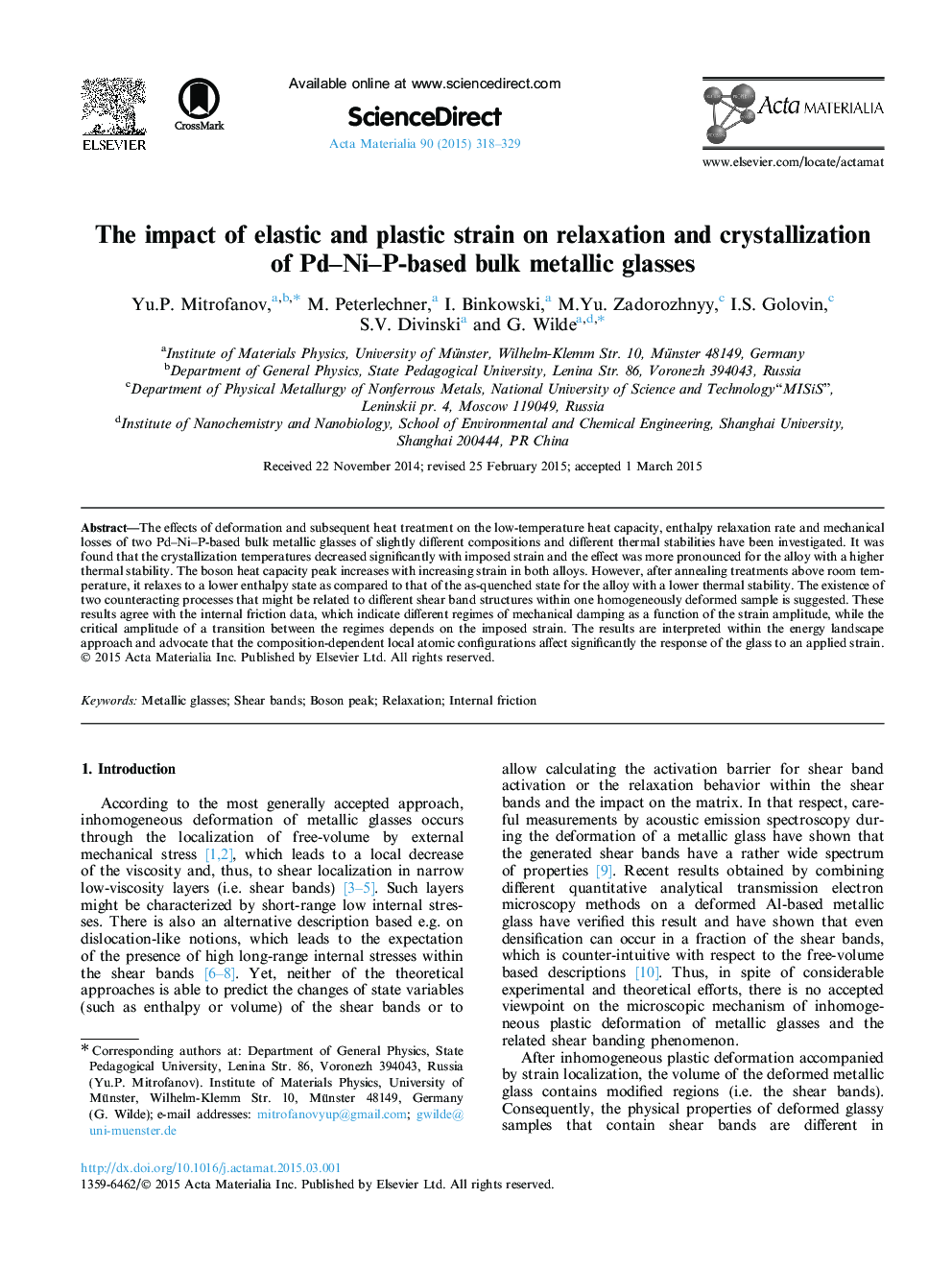| Article ID | Journal | Published Year | Pages | File Type |
|---|---|---|---|---|
| 7880446 | Acta Materialia | 2015 | 12 Pages |
Abstract
The effects of deformation and subsequent heat treatment on the low-temperature heat capacity, enthalpy relaxation rate and mechanical losses of two Pd-Ni-P-based bulk metallic glasses of slightly different compositions and different thermal stabilities have been investigated. It was found that the crystallization temperatures decreased significantly with imposed strain and the effect was more pronounced for the alloy with a higher thermal stability. The boson heat capacity peak increases with increasing strain in both alloys. However, after annealing treatments above room temperature, it relaxes to a lower enthalpy state as compared to that of the as-quenched state for the alloy with a lower thermal stability. The existence of two counteracting processes that might be related to different shear band structures within one homogeneously deformed sample is suggested. These results agree with the internal friction data, which indicate different regimes of mechanical damping as a function of the strain amplitude, while the critical amplitude of a transition between the regimes depends on the imposed strain. The results are interpreted within the energy landscape approach and advocate that the composition-dependent local atomic configurations affect significantly the response of the glass to an applied strain.
Related Topics
Physical Sciences and Engineering
Materials Science
Ceramics and Composites
Authors
Yu.P. Mitrofanov, M. Peterlechner, I. Binkowski, M.Yu. Zadorozhnyy, I.S. Golovin, S.V. Divinski, G. Wilde,
